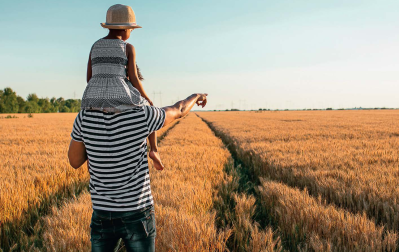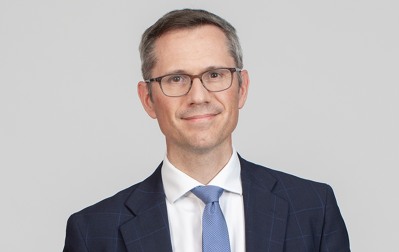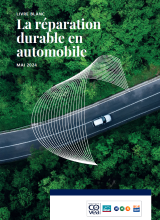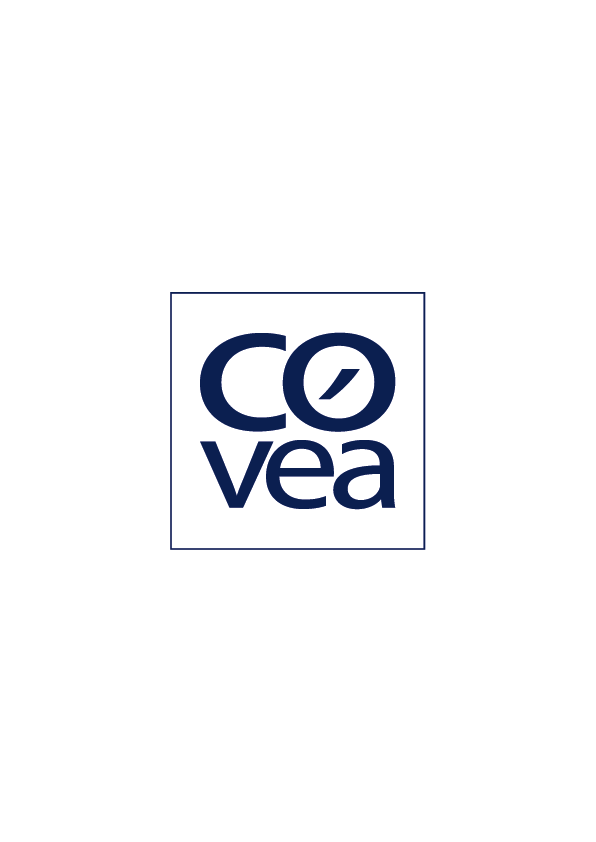Covéa publishes its white paper on sustainable vehicle repair
- Prevention
- Covéa
30 May 2024
Each year, 6.3 million vehicles are the subject of an insurance claim in France¹. The cost to Covéa of repairing them has rocketed, totalling more than €1 billion in 2023².
Although vehicle repairs are increasingly expensive and have a heavy environmental footprint, during 2023 only 29% of parts damaged during a collision for which an insurance claim was made were repaired³, and just 4.9% of replacement parts used were green. (Green parts are defined as second-hand original-equipment-manufacturer parts salvaged from end-of-life vehicles.)
Given the potential benefits of sustainable vehicle repair for society as a whole, addressing the issue is vital. Insurers have a key role to play in promoting new approaches and accelerating their adoption. Their primary responsibility is to support policyholders and safeguard their interests by offering a high-quality service and keeping costs, and therefore future premiums, down.
Covéa, France’s leading motor insurer, has produced this white paper as part of a proactive approach that aims to accelerate change by fostering acceptance of sustainable vehicle repair and creating a complete ecosystem based around three principles:
1. Repair rather than replace
By repairing 12,400 alloy wheels each year, Covéa avoids 1,164 tonnes of CO2eq emissions and keeps 148 tonnes of aluminium out of the recycling circuit, and by repairing 60,000 windscreens each year (through Covéa-approved windscreen repairers following windscreen-cover claims) it avoids 960 tonnes of CO2eq emissions and keeps 800 tonnes of glass out of the recycling circuit.
In addition, Covéa is looking to harness artificial intelligence to optimise processes, as the public is increasingly keen to make use of it. In a foresight study, 79% of policyholders said they would trust an entirely AI-driven claims management system.
Covéa believes that one of the keys to success is putting the focus back on repairing vehicles. To achieve this, Cesvi France, Covéa’s technical centre, has a vital role to play in providing innovative technical solutions and targeted training to rebuild lost skills.
In 2023, Covéa’s network of partner garages was able to repair 71% of the 521,000 vehicles insured by MAAF, MMA or GMF that were involved in accidents.
2. Encourage the use of green parts
- The use of green vehicle parts is gaining traction. It remains marginal however, despite the social, environmental and economic advantages it offers. Not only is this approach to repairs sustainable, it also keeps vehicles on the road for longer, beyond the point where they would previously have been deemed unrepairable, and in doing so saves money. At Covéa, the percentage of vehicle repairs using at least one green part (excluding climate-related claims) shot up from 15% in January 2023 to 17.6% by the end of the year for vehicles five years old or more (109,124 parts fitted). A target of 20% has been set for the end of 2024.
- For a long time, the only approach recommended by the various players involved in the value chain was the use of new parts. But in 2023, after a 17.9% rise in two years, the cost of replacement parts accounted for 51.8% of the total cost of repairs. This sharp increase has already impacted policyholders’ premiums. The use of green parts is therefore a smart way to limit both the environmental impact of repairs and their cost.
3. Broaden the discussion
- Legislation has the power to accelerate change. It must encourage healthy competition in sustainable vehicle repairs, and in doing so offer opportunities rather than putting the brakes on progress. By setting a trend, it pushes all the players in the industry to adopt more ethical approaches.
- One of the roles of an insurance company is to give policyholders information that helps them avoid risks in their daily lives. Consequently, supporting customers as they change their behaviour, offering advice and making services and channels available to repair damaged items falls firmly within their remit.
- To meet the current and future needs of both society and their customers, insurance companies must change the way they operate and integrate the need to conserve resources and consume differently into the products and services they offer.
“To drive engagement and embed good practice, all the stakeholders involved in vehicle repairs – assessors, repair businesses, body shops, policyholders, recyclers, trainers and of course manufacturers – must develop a culture of sustainability. Insurers have an important role to play in disseminating this culture. Covéa will continue to be instrumental in this, in particular through actions to raise awareness and promote the idea. This white paper itself will serve to circulate knowledge and good practice to all the parties involved,” said Valérie Cohen, Covéa’s Chief Insurance Products and Services Officer.
“Legislation needs to bring transparency, protect consumers and promote a healthy and balanced competitive environment. But for the market to develop in a way that benefits everyone, we need supply and demand to grow progressively and in parallel. If it is structured in this way, the ecosystem will be fit to withstand the logistical, psychological, technological and competitive challenges that lie before us all. Our common future depends on this – let’s get it right!” said Stéphane Duroule, Chief Insurance Officer France.
____________________________________________
¹ Source: Sécurité et Réparation Automobile (SRA)
² Excluding glass damage and climate-related claims
³ Source: SRA annual vehicle claims and collisions survey 2023
Read the white paper entitled “La réparation durable en automobile” (sustainable vehicle repair, in French):
Download the press release (in French):
Other news
View all the Group news-

-

- Governance
- Covéa
2023 Integrated Report: Covéa reasserts its leading position and its commitment to a sustainable future
15 July 2024 -

- Governance
- Covéa
Michael Walker has been appointed Group Chief Financial Officer of Covéa
01 July 2024
Our latest publications
View all our publications

